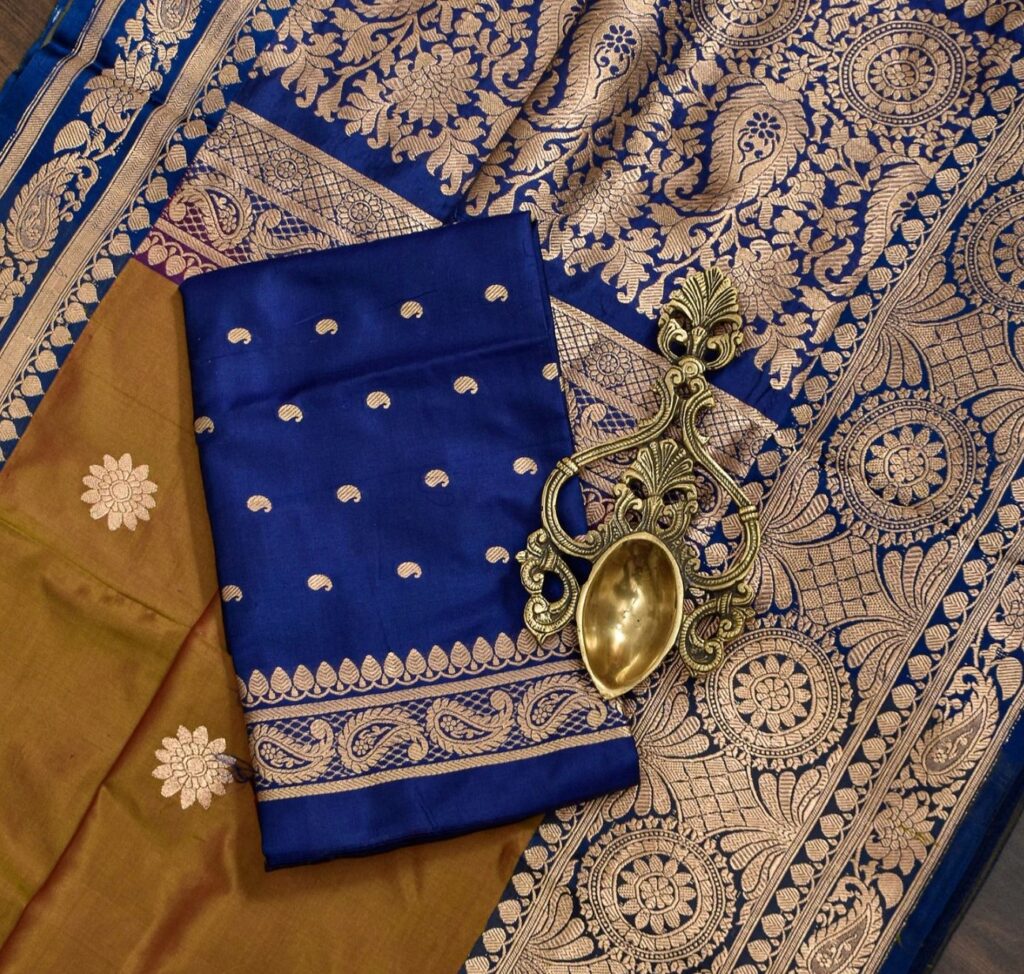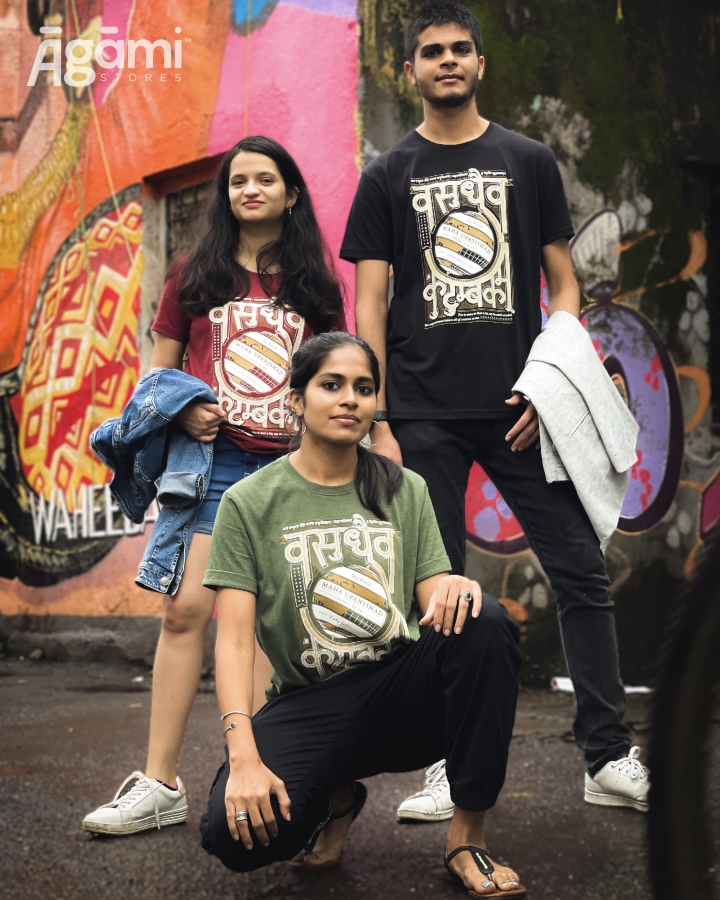Shobitam is a desi fashion cultural enterprise that designs its collections by working directly with weaving clusters throughout India. With the help of its in-house design team, Shobitam brings out exclusive collections of sarees as well as accessories in collaboration with the weavers. This enterprise offers a wide variety of sarees ranging from the Sozni hand-woven embroidery of Kashmir to the mural art of Kerala and the hand block-print Ajrakh from Gujrat to the North Eastern Moirang Phee weaves of Manipur.
Follow our conversation with the founder Aparna Thyagarajan as she takes us through her vision of democratizing ethnicity globally. Read on to find out how she has managed to carve a niche with Shobitam and establish a global presence.
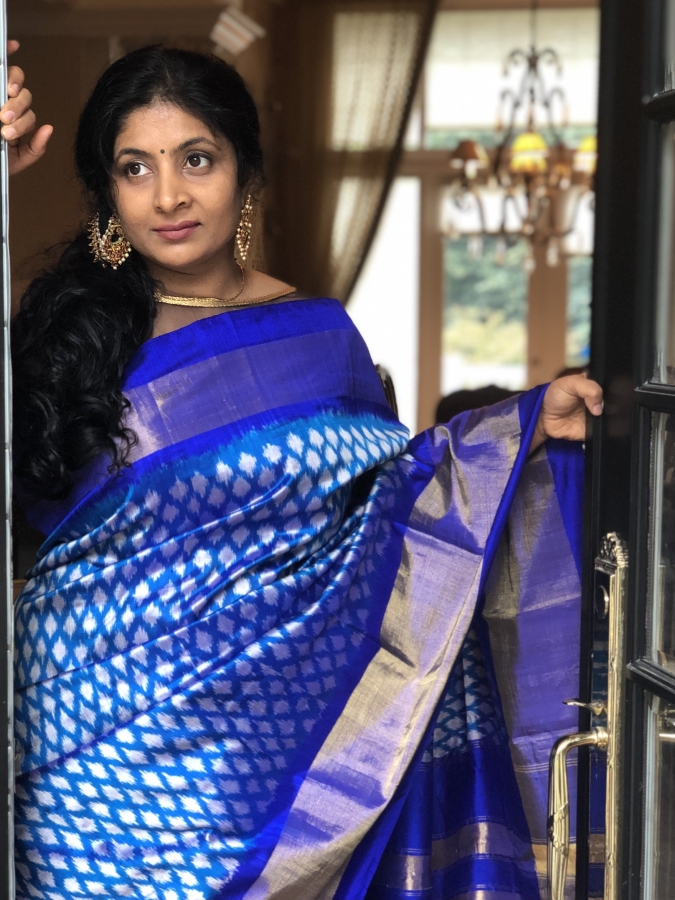
Putting the Thread in the Needle – The Birth of Shobitam
Due to her love for fabrics, textures, and colors, my mother introduced my sister Ambika, and me, to this magical world in our childhood. When I was 12 years old, I was inspired to learn sewing by hand. My first experiment was a dress for my sister made from an old saree. Everyone appreciated the end product, and it soon became a hobby.
After my relocation to the US in the early 2000s, I began to admire the saree even more. For millions of South Asians like me, the saree is more than just clothing – it’s something that helps us celebrate our roots and memories from back home. However, Indian ethnic wear in the US falls short in quality and variety. While working with an Indian artist in 2018 for a saree that Ambika and I were designing for ourselves, the weaver suggested that we could start a boutique and that he would work with us.
After taking a break from my tech role at Microsoft, I started mulling over a business concept. I realized I had a strong passion for fashion and an urge to express myself creatively. The idea was to showcase the best Indian weaves by designing and collaborating with skilled weavers. My sister and I co-founded Shobitam, which means grace in Sanskrit. We are a digital-first, web-based, global ethnic fashion brand, in March 2019.
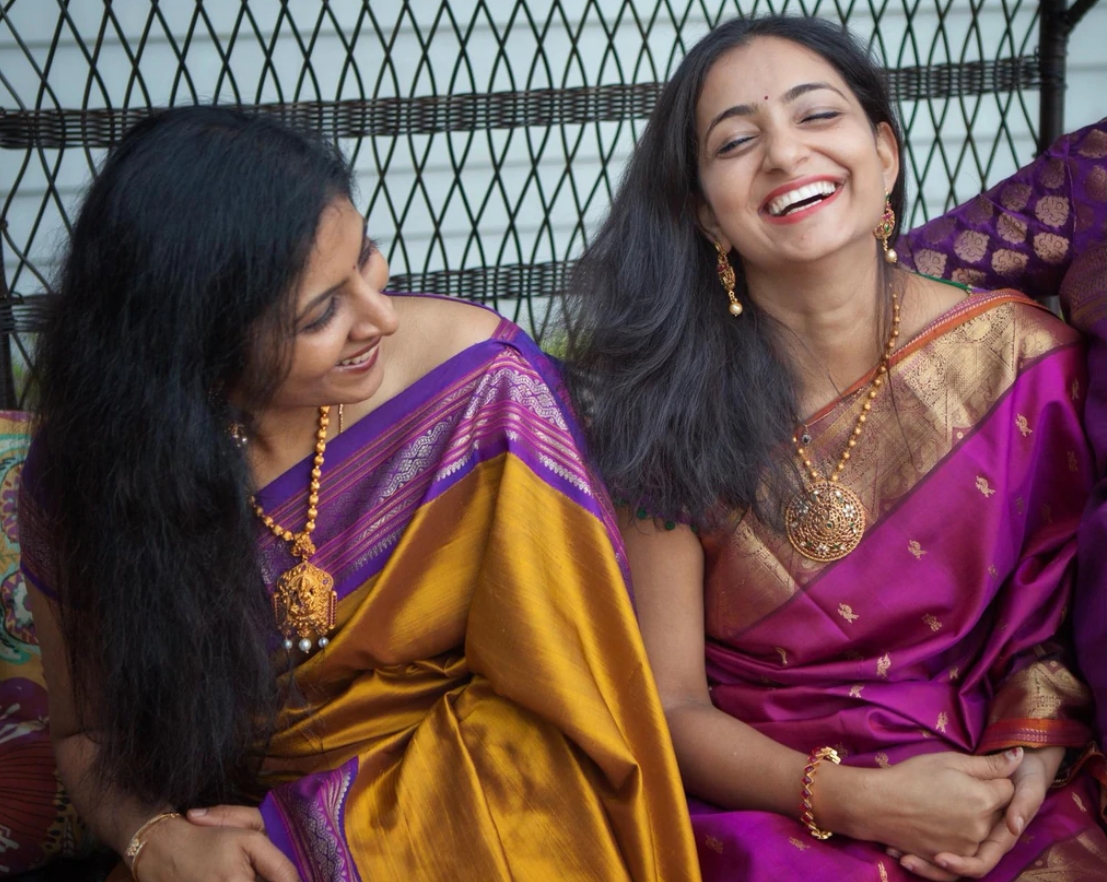
The First Stitch – How it all Began
We started on Etsy with just 15 products. Today Shobitam is witnessing over 300% growth annually over the last two years. We have scaled to over 1000+ products and feature amongst the top 1% stores on Etsy, with over 4000 5-star customer reviews. We have shipped to over 30 countries and earned tens of thousands of customers globally. The massive acceptance received led us to launch our website in 2020, where we have seen exponential growth as well.
We have a three-step approach where we first try and learn about the fabric and weaving techniques from the weavers and pass on the details to our customers. We then feed the weaver information about the customer’s color and fabric preferences. We also develop exclusive products by sharing our original designs, making Shobitam a differentiator in the market.
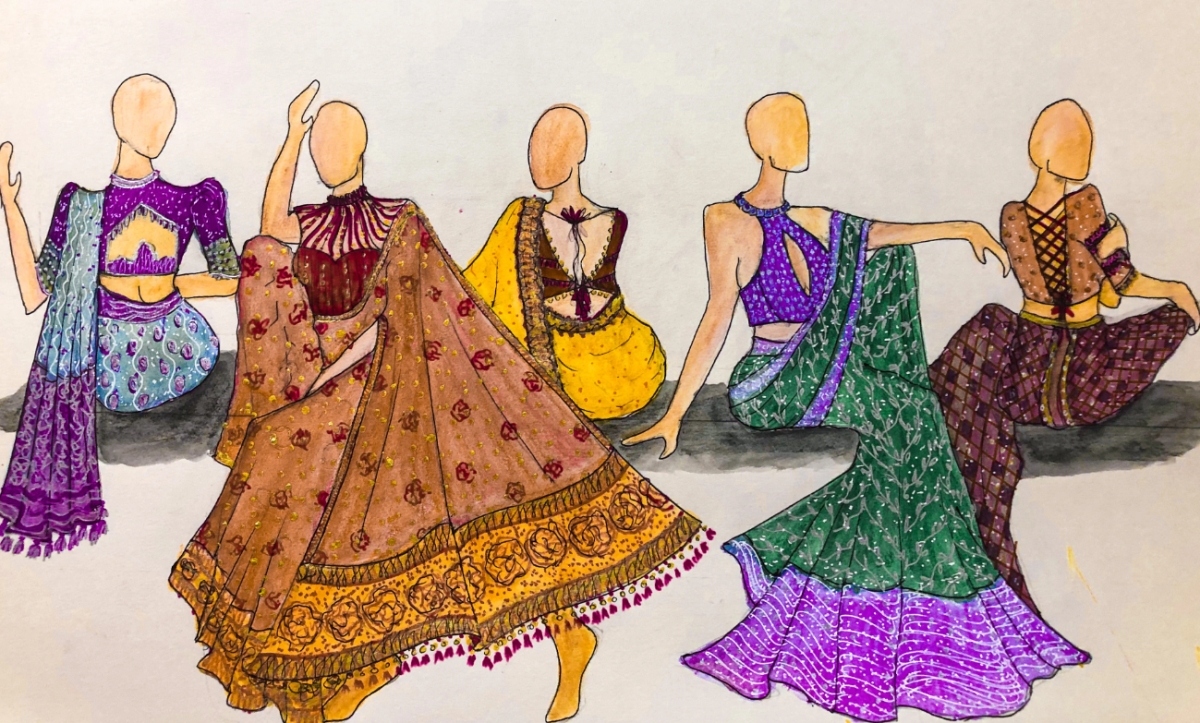
Our focus on customer centricity, design, quality, and variety has won us patrons from all over the world.
Draped Across the Globe – Our Target Demographic
Our target audience falls in the bracket of 25 to 55 years. While wearing something ethnic, most global women want to create a unique experience that makes them feel proud about their cultural identity. At Shobitam, we do not repeat or keep a lot of sarees with the same set of designs. As we design them ourselves, we incorporate diverse styles into the same saree like Chikankari or Gotapatti on Kanjivaram, offering exquisite fabrics.
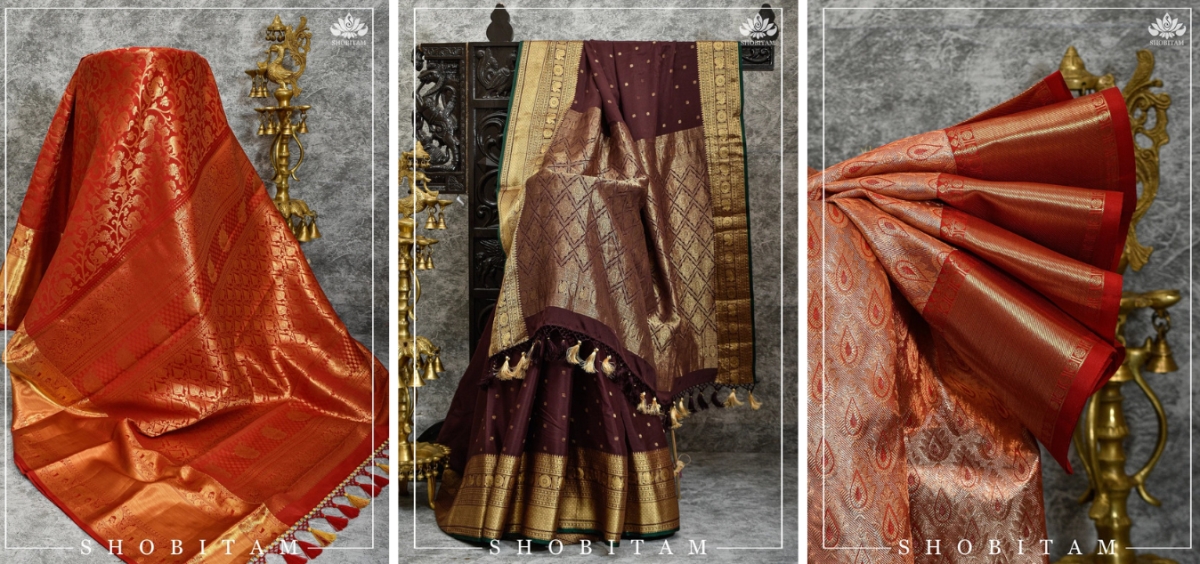
Blouse stitching is an arduous process outside South Asia. Our tech-driven solutions make the process of getting measurements a hassle-free process. Our in-house tailoring unit is highly experienced, and their perfection and quick turnaround times are a big draw for our global customers.
We know the youth of today gives importance to multiple ways of styling. Apart from sarees, we have a good collection of Indo-western fusion wear such as dresses, jackets and more. The current Miss Connecticut winner wanted to embrace her Indian roots for the Miss America pageant and approached us for a dress that showcased Indian craftsmanship. We designed a stylish dress using the Banarasi silk saree fabric.
Our exclusive jewelry and accessories are versatile and can be paired with both South Asian and western clothes. Our website also hosts a wide range of dupattas, jackets, made-to-order outfits, and home decor items.
We have also launched Vegan sarees with a focus on building sustainable closets. The yarns of these sarees are derived from the plant waste of banana, aloe vera, Gongura, and Khus.
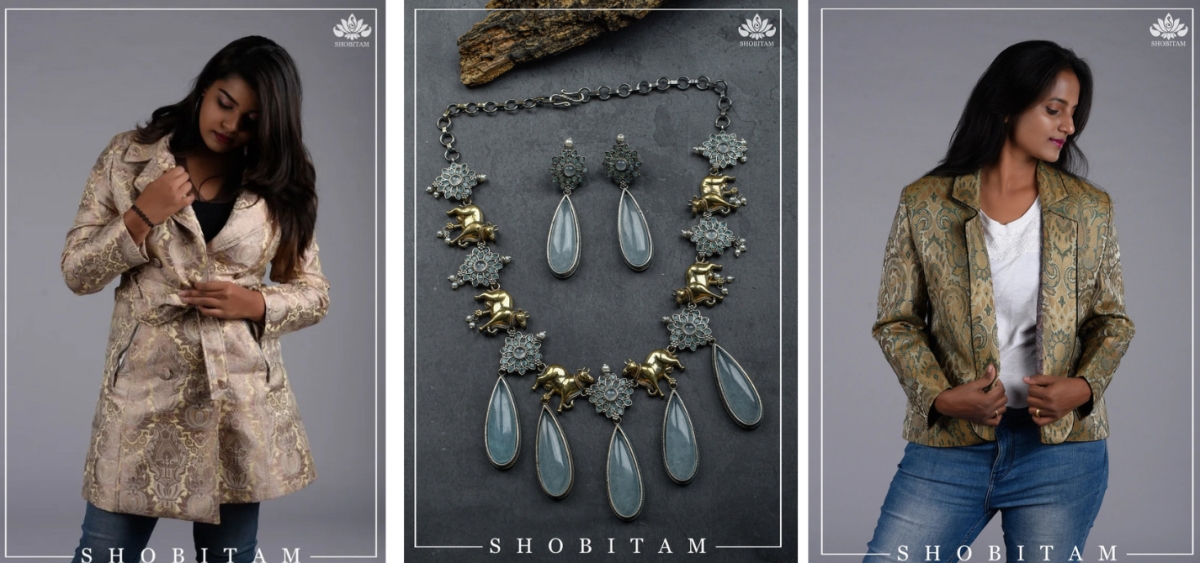
A Stitch In Time – The ‘Weavers First, Customers First’ Policy
Weavers First: The well-being of the 350+ artisans and weavers we work with is our top priority as they carry out labor-intensive work in poor conditions. To empower our weavers, we have launched various initiatives under the “Shobitam Give and Cares” program. We help them secure financial stability and support the education of their children.
Customers First: In parallel, our philosophy is to be customer-obsessed and engage deeply with the community we have built over time. We are very transparent concerning the pricing with our buyers and share the details of making the product with them.
Our impeccable quality, packaging, fast shipments, no-questions-asked returns policy, and custom stitching services have been a great hit with our customers.
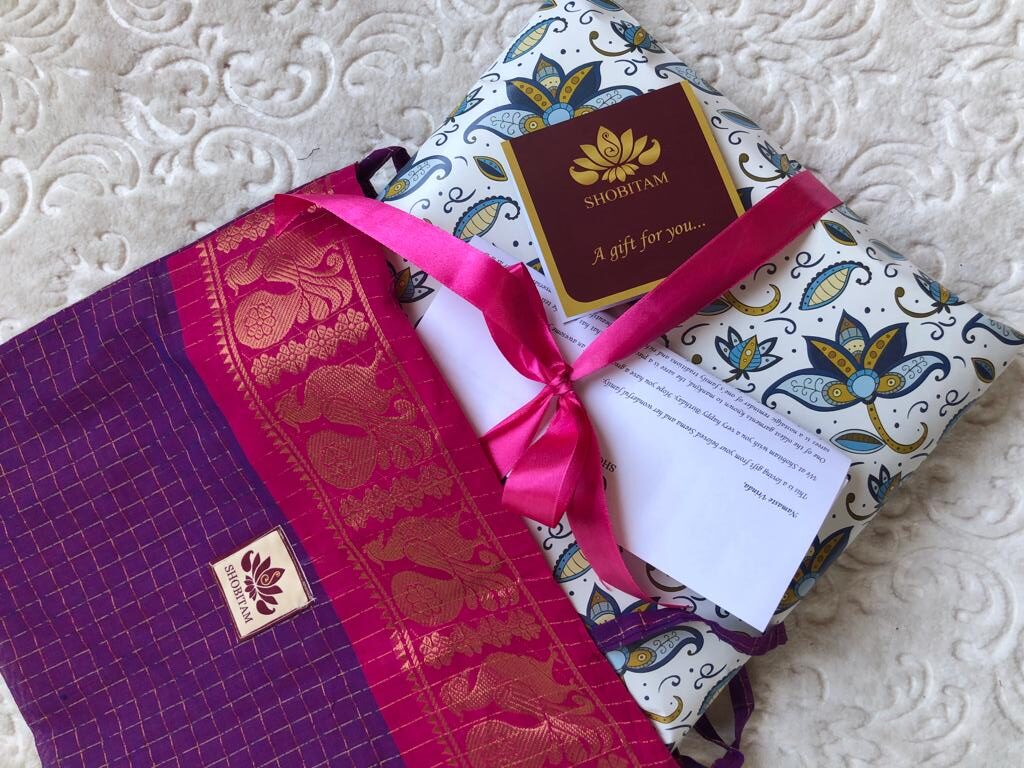
The Snag of the Thread – Challenges and How We Grew From It
We always knew that starting a business without prior experience would be challenging. One of the initial challenges we faced was winning the customers’ trust, as they usually prefer offline purchases since touch and feel are important factors in ethnic fashion. With our technology-led solutions, we handhold the customers right from the beginning.
The other major challenge was winning the trust of weavers and forging meaningful relationships. We had very little in-person interaction with them as all our weavers are from India. We had to invest time in understanding their working styles and winning their confidence. Today they are welcoming of our ideas and incorporate our inputs, helping us release exclusive collections.
We also faced many hurdles while setting up a robust inventory and logistics framework. Our learnings from the first year before the pandemic helped us develop a winning game plan during these difficult times. We built a strong inventory pipeline that helped cater to the rising demand globally as more people migrated online.
The Final Tapestry – Milestones and the Road Ahead
We aim to build Shobitam as an iconic brand with a mission-led approach and a sense of purpose. I believe strongly in the power of education. Today through our “Shobitam Gives” initiative, we work with two world-class organizations, Shanti Bhavan and Amrita Seattle. Both are doing stellar work for the education of kids belonging to economically underprivileged sections of India.
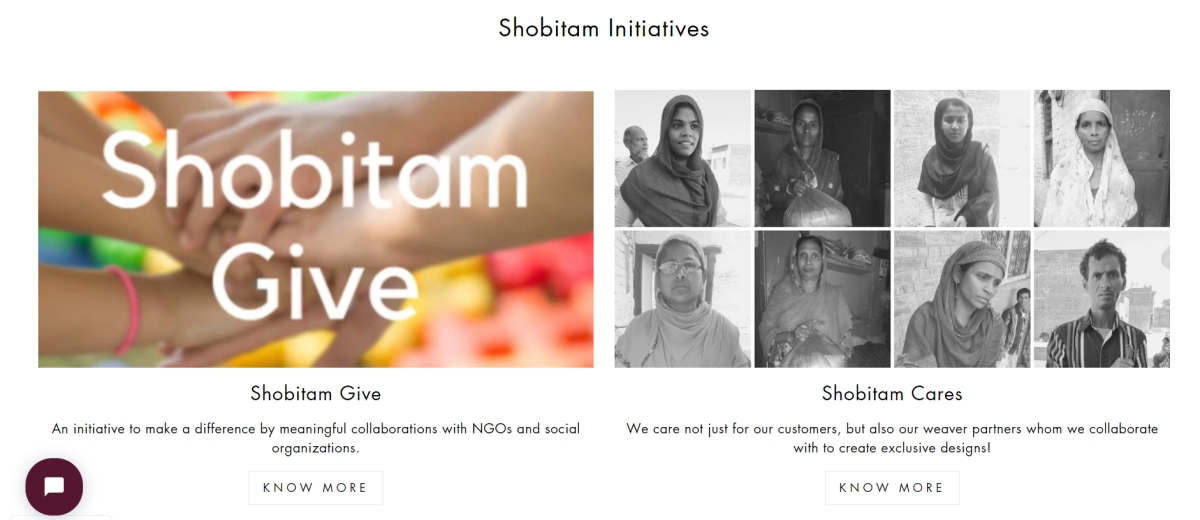
We feel our efforts paying off when we receive touching messages from people across the globe. Today we have investors on board. In 2 years, we have rapidly grown to a community of over 50,000+ fans and followers with deep engagement across social media (Facebook – 40,000, Instagram, Pinterest).
It is also heartwarming to interact with children who are teaching their mothers to shop online. The cherry on top is getting calls of gratitude from our weavers and workers who end up sharing their personal stories with us.
NICEorg wishes Shobitam the best of luck in their journey ahead!
If your cultural enterprise is in any of our five focus sectors and you would be interested in being featured, write to us at namaste@niceorg.in
